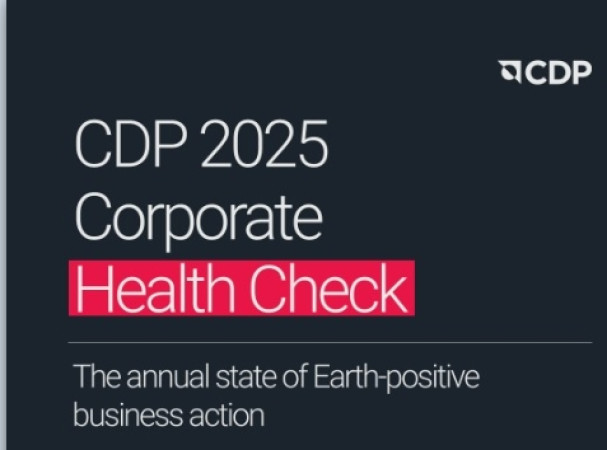
Follow India Renewable Energy News on WhatsApp for exclusive updates on clean energy news and insights
Corporate Climate Action Falls Short: CDP’s 2025 Health Check Report
Feb 04, 2025
A new report by CDP, in partnership with Oliver Wyman, highlights the urgent need for stronger corporate action on climate and nature. Titled "2025 Corporate Health Check: The Annual State of Earth-Positive Business Action," the report assesses how effectively large corporations are integrating sustainability into their business strategies. The findings reveal that despite growing awareness, only a small fraction of companies are making meaningful progress in embedding climate-positive decisions into their core operations.
One of the key takeaways from the report is that only one in ten companies fully integrate Earth-positive decision-making throughout their business models. Many businesses remain at the lowest level of the Health Check framework, either meeting the bare minimum requirements or failing to take significant action. This slow corporate transition poses a major risk as climate inaction is projected to reduce global GDP by 18% by 2050 due to rising emissions and accelerating nature loss.
However, corporate transparency is proving to be an essential driver of climate action. Companies that have been disclosing their environmental performance through CDP in recent years have managed to cut emissions by 2% per year, even as global emissions continue to rise by 1% annually. Despite this progress, the report reveals that only one in three businesses are currently on track to meet their own emissions reduction targets, with European firms leading in sustainability performance compared to those in other regions.
A critical factor in corporate climate leadership is governance. The most proactive companies are those that integrate climate considerations into boardroom decision-making. Notably, 80% of the top-performing firms in the report link executive compensation to climate-related goals, ensuring that sustainability remains a priority at the highest levels of leadership.
Financially, the impact of climate leadership varies by sector. Companies that are on track to meet emissions targets have shown mixed market performance. While frontrunners in transportation, apparel, and service industries have outperformed their less ambitious peers, the trend is reversed in some high-emitting industries. This underscores the need for a balanced approach where businesses align profitability with sustainability commitments.
The report calls for urgent action from both the corporate and policy sectors. While leading companies can drive change through innovative strategies and investments, a much larger proportion of businesses need to step up their efforts in reducing emissions and mitigating nature-related risks. Policymakers, in turn, must create enabling conditions that support and reward Earth-positive business practices, ensuring that sustainable decision-making becomes the norm rather than the exception.
In a world where climate risks are becoming increasingly financial, the 2025 Corporate Health Check serves as a wake-up call for businesses to align with sustainability imperatives. The path to a resilient global economy depends on companies taking a proactive stance, integrating environmental responsibility into their financial strategies, and working collectively toward a net-zero future.